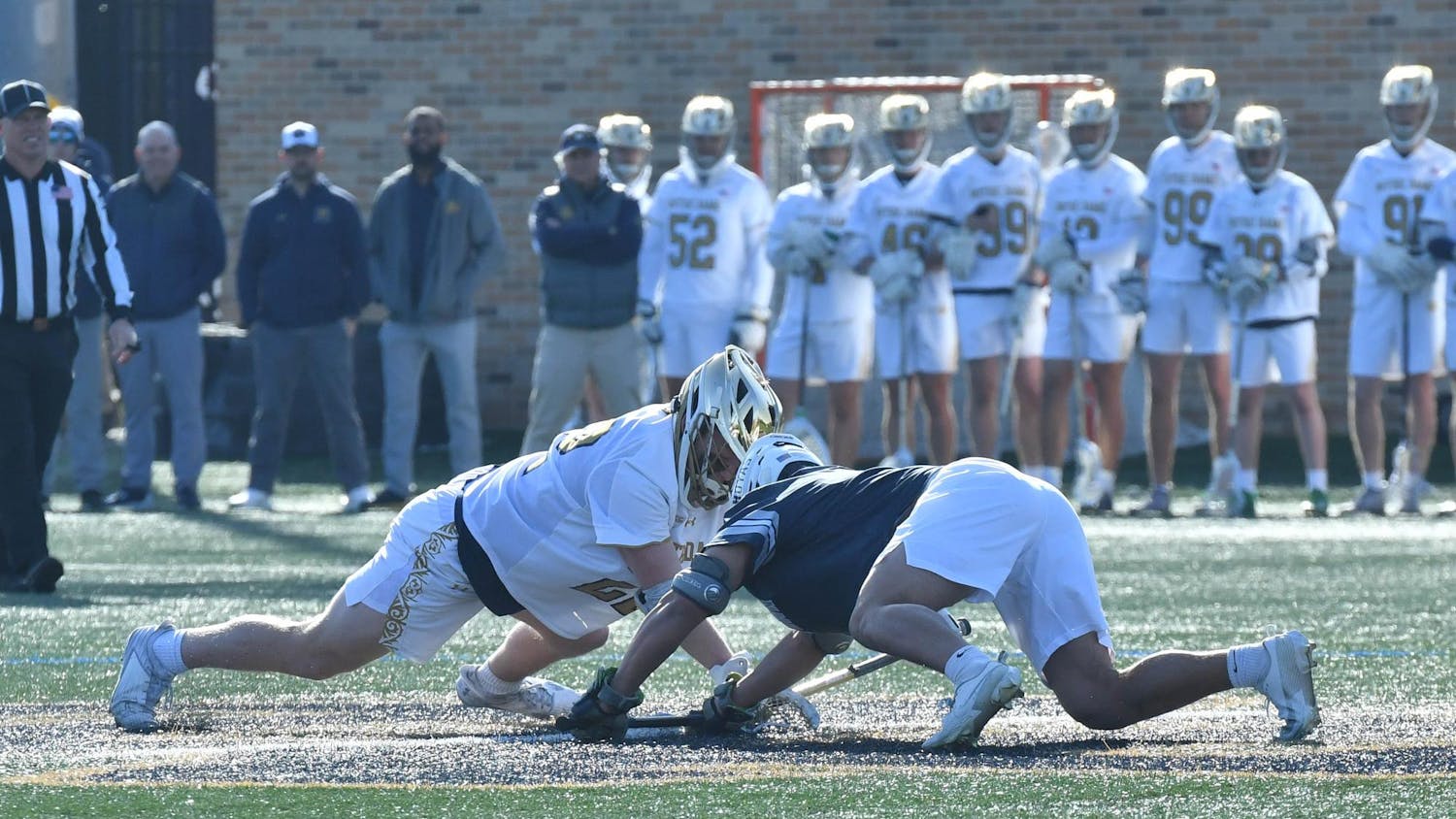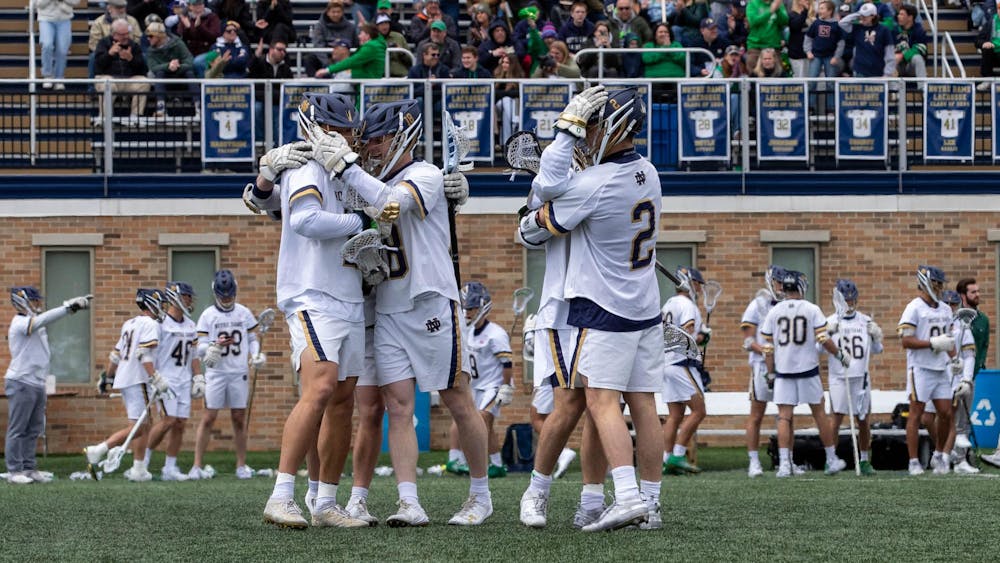Sunday, unlike normal, wasn't a particularly thrilling day in the NFL. We saw the last unbeaten team go down, which was exciting. Other than that game, however, only two of 11 games were wins decided by one possession.
But there was one oddity - something so rare it's occurred just 18 times in nearly 40 years and last happened in 2008 before Sunday.

There was a tie.
Sixty minutes wasn't enough time for St. Louis and San Francisco to separate themselves. Neither was 75 minutes. The Rams and 49ers were deadlocked at 24 apiece after regulation, and following a scoreless 15-minute overtime period, each team's record now has three numbers instead of the typical two.
The NFL is the lone major professional sporting league in the United States that still has ties. The NHL joined MLB and the NBA in abolishing ties in 2005 when it instituted the shootout. College football also had ties - without overtime - until 1996, when it adapted the current system that is now very familiar to every Notre Dame student. Soccer is currently the only prominent sport in America in which ties occur with any regularity.
In a bit of a twist, as the tie has decreased in relevance in most American sports, the NFL actually increased the likelihood of a tie occurring in games this season, though not with that intent.
In 2010, the league adopted a new rule for its playoff overtime games. Previously, the game ended with the first score. The new rule, however, stated if the team that received the ball scored only a field goal on its first possession, the other team had a chance to tie - or win.
This rule was only for the playoffs in 2010 and 2011, but is now the current policy for regular season games, too. This increases the likelihood of ties, of course. However, they are still very rare. Sunday's tie was the 11th overtime game of the season and each of the previous ones led to a winner. And there were no field goals in the overtime between the Rams and 49ers, meaning the new rule had no affect and the game would have ended in a tie under the old system, as well.

Most people are happy with fewer ties in sports. A tie, many say, leaves an uneasy, unfinished feeling and the point of a game is to see which team is better, which a tie does not do. Finding a winner leads to more excitement, and perhaps more importantly, a feeling of closure.
But in the regular season, I say keep the tie. Without overtime.
If the teams have the same score in the allotted time frame of the game, it's perfectly reasonable to say neither deserves a loss, but neither deserves a win, either. They finished the game with the same amount of points, and that will be reflected in the standings. Neither team was better that day. They were evenly matched.
This leads into my next point: Ties make end of games more exciting and increase strategy. When there is the possibility of a tie, a coach has a choice. He can either go for the win and risk a loss or play it safe and accept the tie, but give up the chance for victory. There is no playing for overtime. This adds to the suspense and makes for more difficult and important coaching decisions. Just ask Tom Osborne.
Finally, having ties, ironically enough, can serve as a de facto tiebreaker in end of the season standings, because it leads to a greater possibility teams have different records.
Of course, ties can't occur in the playoffs. One team has to move on to advance, and a tie can't settle that. But for the regular season, which is used primarily to see which teams qualify for the playoffs and their seeds, there's nothing wrong with a tie.
Contact Sam Gans at sgans1@nd.edu
The views expressed in this Sports Authority are those of the author and not necessarily those of The Observer.












